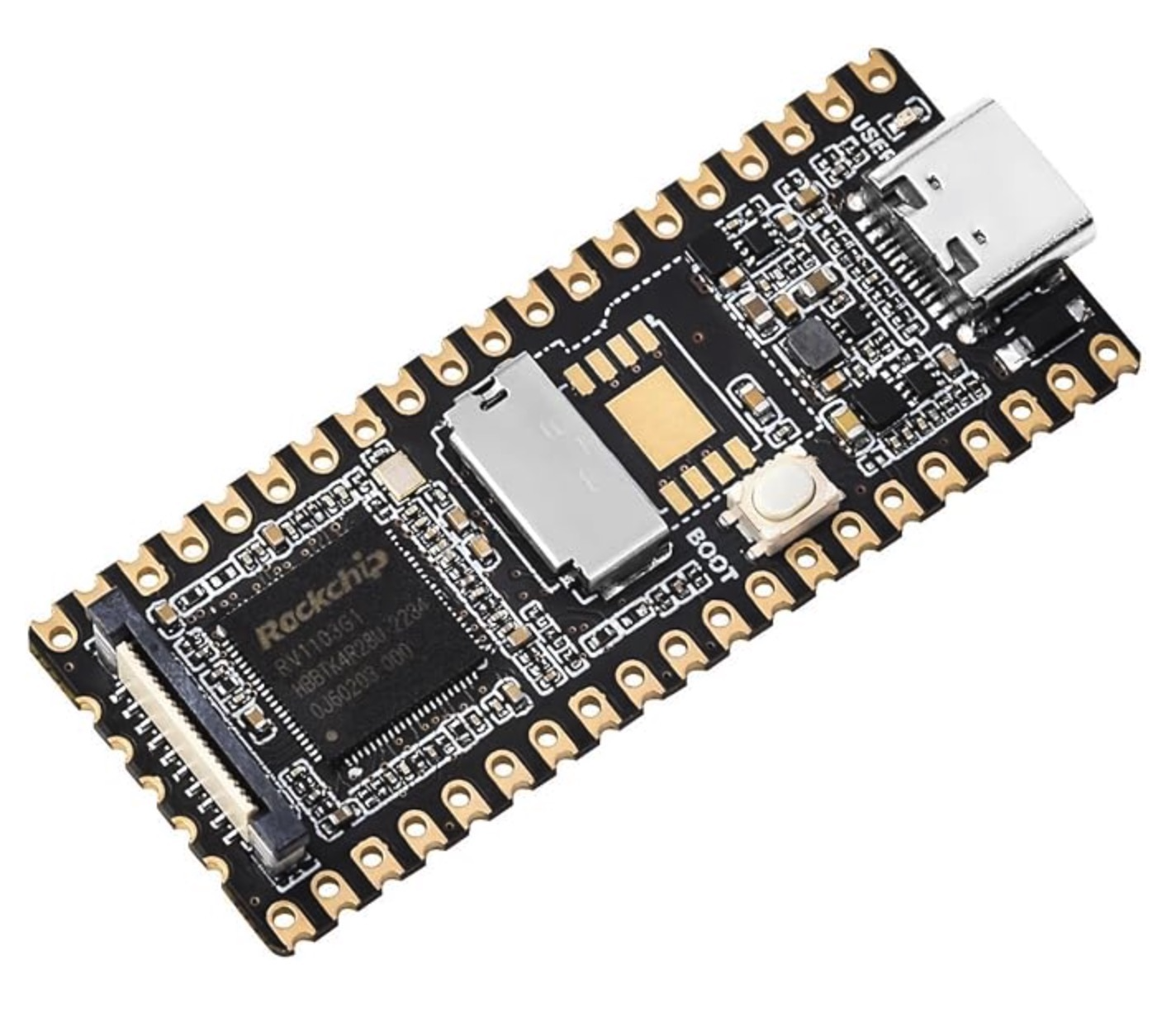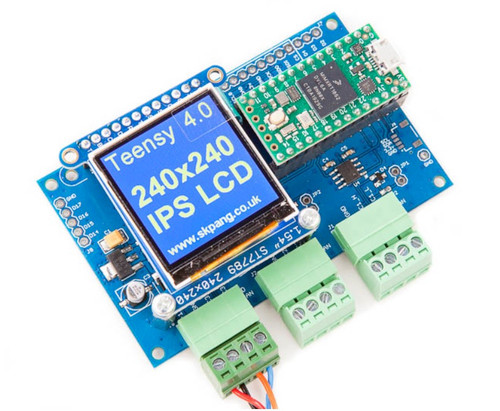Blog
Recent Posts
Linux Development Board, Integrates ARM Cortex-A7 Processors
Posted by on
The LuckFox Pico represents a cost-effective Linux micro development board based on the Rockship RV1103 chip, which supplies a straightforward and efficient development platform for embedded system designers. It supports a variety of interfaces, including MIPI CSI, GPIO, UART, SPI, I2C, USB, and more. Developing applications is convenient, and debugging is quick.
Features
- The single-core ARM Cortex-A7 32-bit core comes with integrated NEON and FPU. Built-in Rockchip self-developed 4th generation NPU features high computing accuracy, supporting int4, int8, and int16 hybrid quantization. The computing power of int8 is 0.5 TOPS, and up to 1.0 TOPS with int4.
- Built-in self-developed third-generation ISP3.2 supports 4-megapixel, with numerous image enhancement and correction algorithms such as HDR, WDR, multi-level noise reduction, and more.
- Features powerful encoding performance, sustains intelligent encoding mode and adaptive stream saving according to the scene, and saves more than 50% of the bit rate of the conventional CBR mode. The images from the camera are high-definition with a smaller size, effectively doubling the storage capacity.
- The built-in RISC-V MCU supports low power consumption and fast start-up, supports 250ms quick picture capture, and loads AI model library simultaneously to realize face recognition "in one second." There is a built-in 16-bit DRAM DDR2 capable of sustaining challenging memory bandwidths. It is integrated with built-in POR, audio codec, and MAC PHY.
Teensy 4.0 Triple Board with Two CAN 2.0B And One CAN FD Port With 240x240 IPS LCD And MicroSD
The Teensy 4.0 is an Arduino-compatible board with an Arm Cortex-M7 microcontroller running at 600 MHz. The board is compatible with the Arduino IDE and the Arduino library. In most cases, code written for another Arduino board works with a minimum of changes on a Teensy. The Teensy 4.0 Triple CAN Bus Board with 240x240 IPS LCD And MicroSD is a Teensy 4.0 board with triple CAN Bus connections, two Classical CAN 2.0B, and one CAN FD. It can be powered by an external +12 VDC power supply with reverse voltage protection. Also included is a 240x240 wide-angle IPS TFT LCD display with microSD holder.
Dual CAN PCIe Card for Industrial, Automotive Applications
Cervoz Technology, a supplier of embedded components for the industrial PC market, has extended its industrial modular expansion cards line with the MEC-CAN-2802i, which provides two isolated CAN CC (Classical CAN) interfaces. The expansion card delivers a cost-effective solution for integrating CAN CC ports into embedded computer systems, especially in hostile environments. The board incorporates an M.2 [...]
Automotive Development Module has CAN FD, LIN, Ethernet Port
Renesas has launched a software development board featuring the R-Car S4 System-on-Chip (SoC). The scope of delivery includes the Whitebox SDK open-source software. The R-Car S4 facilitates the launch of Car Server/CoGW with high performance, high-speed networking, high security, and high functional safety levels required as E/E architectures grow into domains and zones. The R-Car S4 solution [...]
PCIe Board with 4-Port Isolated CAN FD for Applications
Sunix (Taiwan) manufactures CAN (FD) interface cards for commercial, agricultural, military, government, recreational, and other industries. Their recently introduced CAN4F00SI PCIe card offers four isolated CAN FD ports. The interface cards can self-diagnose and repair data errors to meet the demand for accurate UAV (Unmanned Aerial Vehicle) control in mission-critical applications. The mission computers, autopilot computers, actuators, [...]
Raspberry Pi Compute Module With CAN FD for Automation and IoT Applications
Kontron announced the release of their Pi-Tron CM4 computer with Linux OS, which utilizes the fourth-generation Raspberry Pi compute module with the 1,5-GHz, 64-bit Broadcom BCM2711 chip and four Arm Cortex-A72 processors. The computer’s steel housing allows for universal use, e.g., for automation and IoT (Internet of Things) applications. Depending on the variant, it provides a 1-GiB, 2-GB, [...]
Fast-Boot Your Raspberry Pi 3 Linux In Under Two seconds
Raspberry Pi enthusiasts are looking for a way to fast boot a Raspberry Pi mini-PC. They may be interested in a new project available via Github. The project describes the fast booting of a Raspberry Pi 32 Linux in under two seconds. Check out the video link below to demonstrate how quickly you can [...]
Industrial PC Based On Raspberry Pi Platform Supports A Broad Range Of Connectivity Options And Functions
The Revolution Pi series, from KUNBUS GmbH, is a cost-effective industrial PC based on the well-established Raspberry Pi platform. The RevPi series, for short, represents controllers composed of open hardware and software, meeting the EN 61131-2 standard. The operating system is a specially adapted Raspbian version with an RT patch. The RevPi Compact from KUNBUS is a [...]
Embedded STM32 Module With Two CAN FD Ports And Linux OS
Emtrion Embedded Systems introduced its Emstamp Argon computer-on-module, an STM32 module with two CAN FD interfaces. The board utilizes the STM32MP157 processor from ST Microelectronics. It carries dual ARM Cortex-A7 (650 MHz) and ARM Cortex-M4 (200 MHz) cores, making it suitable for Industrial Internet of Things (IIoT) and other industrial communication systems. Moreover, it provides an ARM [...]
Computer On Module With NXP i.MX 8M Mini CPU Supports Two CAN FD Ports, FreeRTOS, Linux
F&S Elektronik Systeme extended their product line of Picocore modules, which integrate up to two CAN (FD) Bus interfaces.The Picocore MX8M module utilizes the NXP i.MX 8M Mini CPU with one, two, or four ARM Cortex-A53 cores operating at 1.8 GHz plus a Cortex-M4 processor for real-time processing at 400 MHz. The boards use an adapted [...]
Linux Based LTE Gateway For IoT Applications Supports CAN Bus Interface
IoTmaxx (Germany) introduced its Maxx GW 4100 4-G mobile radio gateway with CAN Bus interface. The „always-online" functionality establishes a connection to the device autonomously or reestablishes the link in case of a failure. The two integrated SIM card slots provide mobile network operator redundancy. The received data is buffered in the internal memory of the [...]
 Loading... Please wait...
Loading... Please wait...


